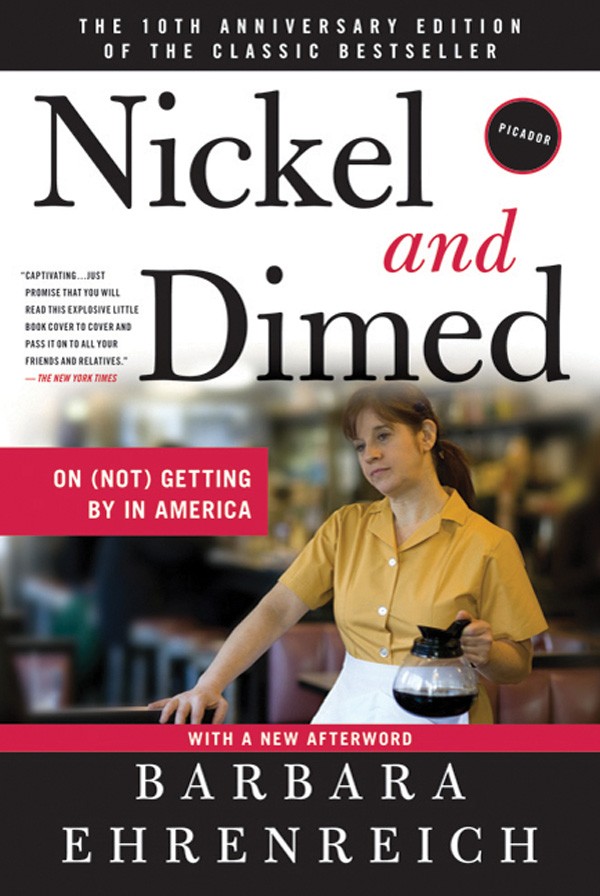Do you remember the end of the Clinton era? Those halcyon days before the dot-com bubble entirely deflated (roughly between the theatrical release of The Big Lebowski and the inauguration of George W. Bush) seem like a financial fantasy now. In Florida, gasoline cost 99 cents a gallon; a day at Disney would set you back $42; jobs paying $12 per hour sprouted like weeds. Flash forward a decade to today, and gas is over $3.50, Walt Disney World tickets cost roughly $90 and there are dozens of applicants for every minimum-wage opening.
Those days seem now like a lost golden age, but even those boom times mostly benefited people like me – white, male, college-educated. For millions without those advantages, the millennium merely marked the beginning of a long slide from the lower middle class into borderline poverty. It’s a story that went largely unseen in the shadow of America’s rapidly inflating overall wealth, except for the gimlet eye of author Barbara Ehrenreich, whose seminal exposé Nickel and Dimed: On (Not) Getting By in America has been re-released by Picador in a new 10th anniversary edition.
A decade ago, this celebrated contributor to Harper’s and The Nation abandoned her cosmopolitan comforts and went undercover around the country as an unskilled worker. Her goal seemed simple: In a series of unfamiliar cities, with scant cash and no contacts, she attempted to find an entry-level job and an affordable apartment inside a month without going bankrupt. Her experiences from Florida to Minnesota made clear that back then such a subsistence existence was barely possible, even with unceasing, back-breaking labor; under today’s real-wage deflation, it’s virtually impossible.
The anecdotes from the world of underemployment that illustrate Nickel and Dimed are eye-opening and heart-breaking, but also unsurprising for anyone who’s observed how service employees are treated in our tourism-dependent town, which happens to be ranked among America’s “10 meanest cities” toward the poor and homeless. Ehrenreich recounts removing all education and skills from her résumé in order to waitress in a Key West dirty spoon; scrub suburban floors in Portland, Maine; and sell merchandise in a Minneapolis Walmart whose employees were so underpaid that they were eligible for welfare. (Interestingly – or depressingly – today you’d have to leave those advanced skills on even to get a minimum-wage sales gig at a big-box store; back then, she took them off so as not to arouse suspicion. With the unemployment rate at 10 percent, the concept of “overqualification” is a thing of the past.) Following her, you’ll be insulted by the invasiveness of drug and personality screenings; infuriated by the inability of injured workers to get a paid sick day; and nauseated by the bacteria-spreading techniques employed by corporate housecleaning franchises.
Ehrenreich’s empathetic and often grimly jocular tone makes this a must-read classic of economic sociology, and a decade later the issues she identifies have only intensified. While it’s important for a new audience to be exposed to her stories, it’s disappointing more wasn’t done to update the text for this anniversary reprinting. A brief new afterword touches only superficially on the controversies that greeted the original publication (including Adam Shepard’s book Scratch Beginnings, written expressly to refute Ehrenreich’s “Marxist” thesis), and the copious statistical footnotes could stand refreshing with up-to-the-moment data.
Nevertheless, one question Nickel and Dimed asks still resonates with anyone worried about the costs our “race to the bottom” corporate culture imposes upon society’s collective soul: “If you hump away at menial jobs 360-plus days a year, does some kind of repetitive injury of the spirit set in?”




















